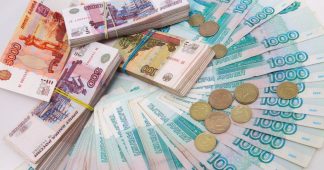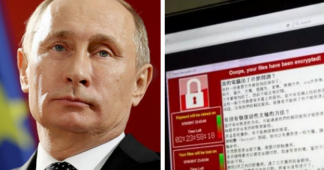2 Dec, 2019
President Vladimir Putin has signed into law a bill mandating Russian-made software for any electronic device sold in the country. Big tech companies have opposed the legislation and petitioned the Kremlin against it.
The idea of having Russian applications pre-installed on any smartphone, computer or smart TV sold in Russia to make them more attractive for the locals and give customers a broader choice was welcomed by several Russian internet giants. However, the legislation provoked quite a stir from a number of foreign companies, some of which even came together to send Putin a letter, outright asking him to veto the controversial bill.
It appears that Putin was not persuaded by the plea, made by a major association that includes such giants as Google, Apple, Samsung, Huawei, Dell, IBM, LG and others, though it warned that making Russian software mandatory might lead to a “decrease in business activity in the consumer electronics and software markets” and eventually to their “monopolization.”
Media speculated that some foreign companies could leave the Russian market altogether if confronted with strict new regulations. One such company is rumored to be Apple – the tech giant known to be uncompromising when it comes to their own preinstalled software. If so, Apple may now face a tough choice, given that its Russian market is worth $3 billion.
Proponents of the law, however, say that it is precisely intended to fight monopolization. The bill is intended to help Russian companies promote their products on the domestic market and limit domination of the foreign tech giants, said Aleksey Sinitsyn, a member of the Russian Senate’s economic policy committee.
Is the law as scary as it sounds?
It’s worth noting that the actual text of the law, which is public, does not appear to be as menacing or as far-reaching as the critics said it would be. It neither provides a fixed list of devices that fall within its reach, nor specifies the list of programs that need to be installed. It also hasn’t introduced any specific punishments for non-compliance.
That does not mean, however, that all the foreign tech giants can now heave a sigh of relief, as the law does give wide-ranging powers to the Russian government when it comes to deciding what software should be installed on what devices and how it should be made. The cabinet has not announced any decisions on that matter yet, which will keep the companies in suspense going forward.
Some companies have said the regulations would not be a major concern. A spokesperson for Samsung Electronics told Russian Vedomosti daily that it would not affect the company’s plans for the Russian market and all the requirements would be fulfilled. Others, including Huawei and Apple, have refused to comment on the signing of the law.
A separate bill on sanctions for breaking the law has been introduced to State Duma – the lower house of the Russian parliament. Fines for non-compliance with the new law could amount to between 30,000 and 50,000 rubles ($467 and $779) for individuals and between 50,000 and 200,000 rubles ($779 and $3116) for legal entities, TASS reported citing the draft bill.











